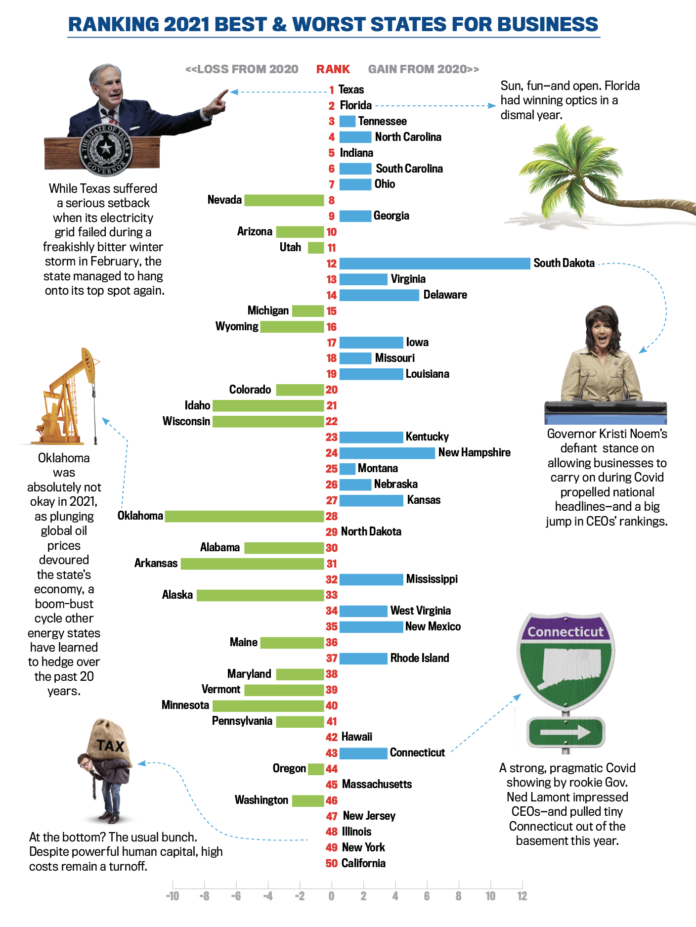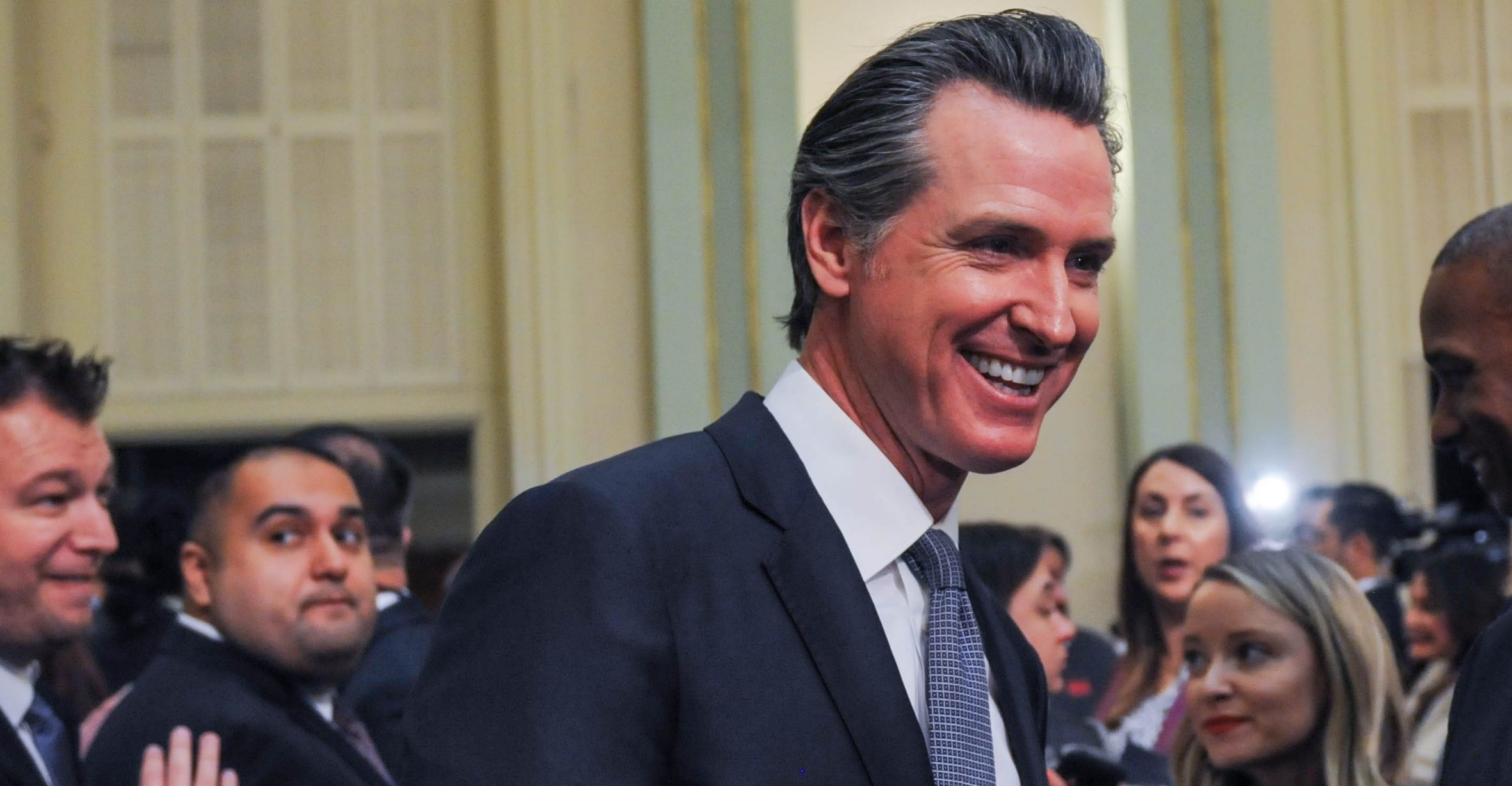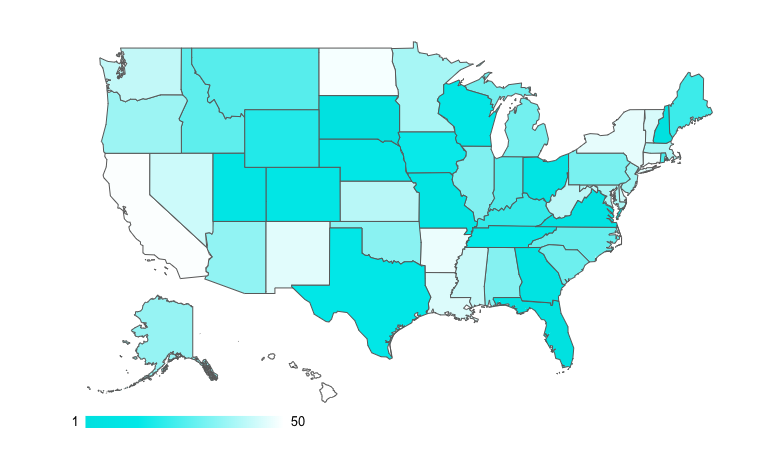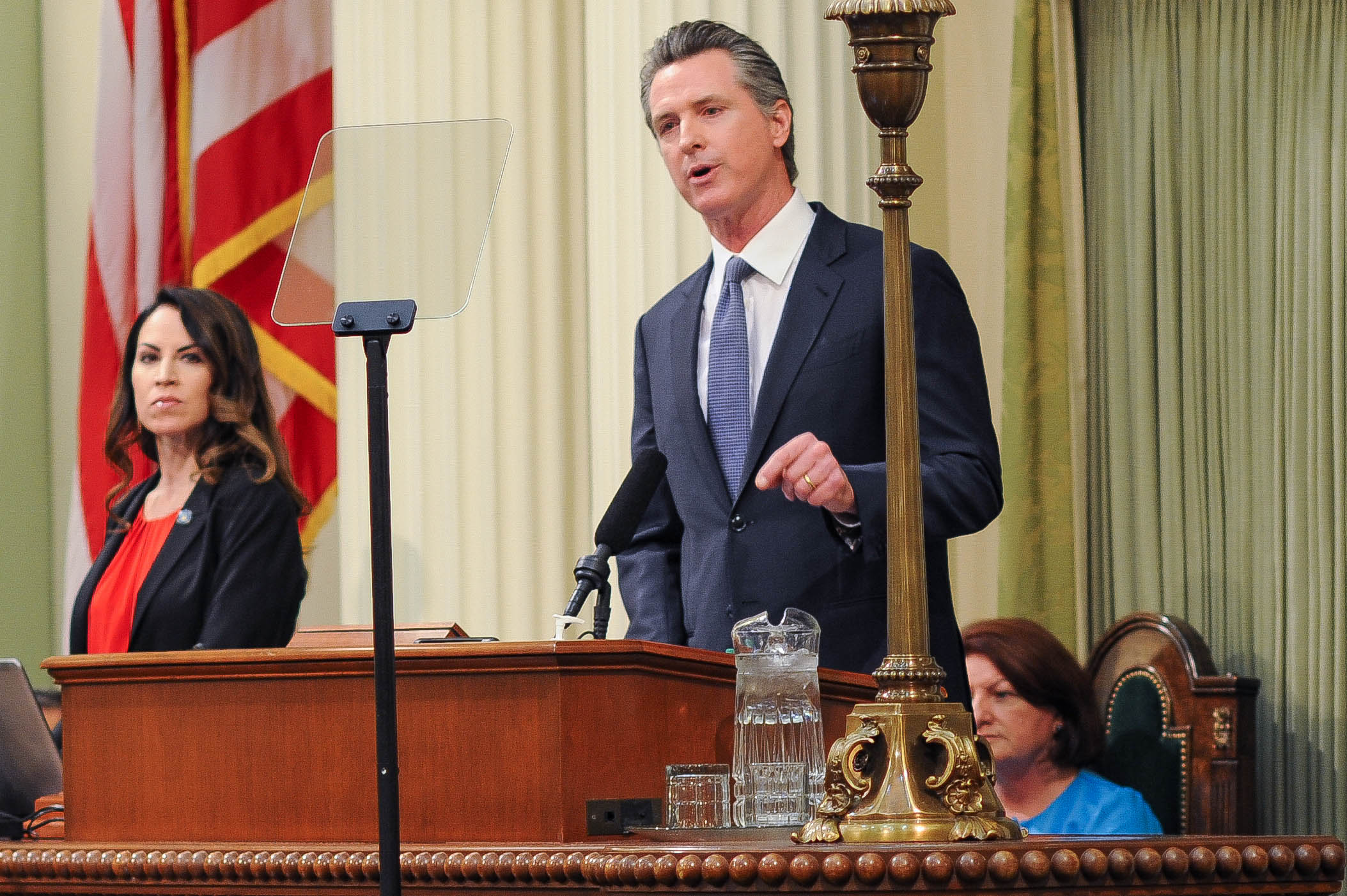
California Bear Flag. (Photo: ca.gov)
California #50 (again) in Chief Executive Mag’s Best & Worst States For Business 2021
Rounding out the bottom are five Dem-controlled states
By Katy Grimes, May 5, 2021 3:57 pm
In 2020, Tesla founder Elon Musk announced he had enough of California’s lockdowns and left California for Austin Texas, and took more than 10,000 jobs with him.
Hewlett Packard Enterprise announced its global headquarters move to Houston, Texas from California.
Oracle announced they had already moved their headquarters from Redwood City to Austin, Texas. Other big businesses already left California: Toyota Motor North America, Kubota Tractor Corp., Hardee’s/Carl’s Jr., Charles Schwab, Jamba Juice.
We know why California companies leave for other states: Chief Executive Magazine reports year after year that when CEOs across the country are surveyed, they name California as the worst state in the country in which to have to do business. California has the highest-in-the-nation taxes, one of the highest business tax climates, with the last Tax Foundation ranking California at No. 49 – the second worst in the nation, ahead only of New Jersey.
“For the 17th year in a row, Texas tops Chief Executive’s Best and Worst States for Business list. Number two? Florida, once again. And once again—yawn—California, New York, Illinois and Massachusetts pile up at the bottom of our rankings.”

Chief Executive reports that even with the COVID panic and pandemic across the country, the states which remained mostly open for business, or worked closely with businesses on safety protocols, rather than shutting all industries down, fared much better in the 2021 survey.
The criteria CEOs use in ranking states are tax policy (37 percent rank it first), regulatory climate (35 percent) and talent availability (25 percent)—Texas and Florida outclass all comers, Chief Executive Magazine says.
Texas – #1
“For the 17th year in a row, Texas tops Chief Executive’s Best and Worst States for Business list, despite the freak mid-February winter storm and collapse of its power system. ‘These things aren’t going to affect our standing at all,’ Governor Greg Abbott tells Chief Executive. ‘People know one-off events occur, and what matters most is what our response is. Texas is responding very aggressively and strongly and will ensure a stable power-grid system that will be the most robust in the United States,’ especially after the state legislature finishes grappling with solutions in May.”
Florida – #2
“The Sunshine State is the clear winner in last year’s economic perception derby. Jonathan Chariff, CEO of South Motors Group, says Florida’s response to the pandemic has been ‘a tremendous factor,’ in his decision to expand there—some $40 million in new BMW and Honda dealerships in Miami. ‘Florida is blowing up. Except for the extra traffic, it’s great.’”
South Dakota – #12
“South Dakota, where Governor Kristi Noem was defiant about allowing businesses in her state to carry on, jumped 12 spots to No. 12 thanks to national headlines—and praise from business leaders. ‘We’ve been free to operate as we choose, not just through the pandemic, but long before as well,’ says Travas Uthe, CEO of Trav’s Outfitter, a big-box outerwear store in Watertown, South Dakota.”
Rhode Island – #37
“Rhode Island, which maintained a more open attitude than its neighbors, climbed to No. 37 from No. 40. ‘We never shut down our manufacturing sector or construction activities, which was rare among the states, because we partnered quickly with industry on safety protocols,’ says Stefan Pryor, Rhode Island’s commerce secretary.”
Rounding out the bottom:
#44 Oregon, #45 Massachusetts, #46 Washington, #47 New Jersey, #48 Illinois, #49 New York and California… some of these Democrat-controlled states are still in COVID lockdowns, or are partially locked down.
California – #50
“At the bottom? The usual bunch,” Chief Executive reports. “Despite powerful human capital, high costs remain a turnoff.” Gas is up over $4.00 per gallon again in the Golden State, groceries are up more than 10%, businesses are still not allowed to open fully or operate at 100% capacity, there is high unemployment with millions of jobs lost, and expect energy prices to also go up with Gov. Newsom’s executive order to ban all new fracking permits in California by 2024; the governor has also said that the state is considering halting all oil extraction in the state by 2045.
- California’s High Gas Prices and Refinery Closures Have Real Consequences - February 13, 2026
- Gavin Newsom’s California Explodes in Fraud as he Galavants in Germany - February 13, 2026
- Trump EPA Overturns Bogus Obama Greenhouse Gas Rule - February 13, 2026





The BOTTOM from 35 to 50 Are all BLUE states
#41 Pennsylvania went blue in 2020
to find the highest blue state is Nevada at #8 but its on the decline!!
14 of the top 20 are RED areas.
The worst red state is at #39.
Yet we have strictly Blue on Capital Hill. Nothing can change if the same is positioned atop
In the case of California, it’s what happens when your population grows without a proportional growth in infrastructure, and at the same time it allows minorities – mostly low IQ incompetents with a collective chip on their shoulders – Leftists and “East Coast People” to run things.
In the case of California, it can be argued that the “Have-Nots” and rent seekers have overwhelmed the systems. Consequently, what was once simple, timely and affordable has become too complicated and drawn out, encumbered by endless, stalling and costly permittings, hearings and lawsuits. Essential maintenance of public works is now deferred or simply not done, its beneficiaries oblivious as to it’s increasingly tenuous state. Showy good feeling and virtue signaling has become more important than substance and true accomplishment. And so on.
And soon and without knowing it, things no longer work as they should.*
California’s dead last ranking makes it clear that, at least in the coastal metro areas, the whole thing is finally fracturing and has begun to collapse as the productive classes go elsewhere. All it needs is a good kick to send it over the edge, a Black Swan event such as a natural disaster – earthquake anybody? – or a sociopolitical event such as a major war rendering those self-same cities target zones.
(Just a relatively simple San Andreas event in simultaneously and along the stretch between the Cajon and Tejon Passes would shut down almost completely and long term the rail and road networks and water supply serving Southern California. And, no, the various ethnic tribes wouldn’t get together to hold hands and sing Kumbaya as things rapidly fall to pieces)
Believe it or not, there’s still time to save everything. But it’s going to take an extremely hard turn to the right, most likely lead by the, at present, under represented rural counties of the State. Possible, but probably not likely. And in that case, you’re looking at a scenario straight out of Tainter’s absolutely classic The Collapse of Complex Societies.
Just a thought.
VicB3
*Old 70s TV programs from before I was born – Hart to Hart comes to mind – that were filmed in Southern California really highlight this. You can’t help but notice that everything seems cleaner and well maintained, and without the squalor and such celebrations of “diversity” as graffiti and razor wire everywhere.
Ain’t that the truth!!! Old television shows filmed on-site in So Cal or even “The Streets of San Francisco” highlight the THIRD WORLD SQUALOR that three generations of FAILED DEMOCRAT leadership have inflicted on the ONCE “Golden State”
Now it’s tin, or maybe flimsy aluminum…
If Pelosi manages to add a few more states Kalifornia can drop even lower!
Of course California is dead last.
Yet, the “woke” CEOs of the “woke” corporations support the Dem Party that wants to make all of America like California.
And, the same “woke” CEOs of the same “woke” corporations support open borders, amnesty and mass immigration to flood the country with new Dem voters that will make all of America like California.